|
The International Association of Athletics Federations has been widely criticised for the way in which it has dealt with South African athlete Caster Semenya. She’s been barred from participating in certain events unless she takes medication to artificially lower her testosterone. Steve Cornelius argues that the case against Semenya goes far beyond so-called differences of sex development: it is about the fundamental human dignity and
privacy of every athlete participating on the global stage.
Narendra Modi has been re-elected as India’s Prime Minister. Chandrima Chakraborty writes that his victory is partly explained by his ability to portray himself as a selfless Hindu ascetic devoted to the nation – an image carefully cultivated over decades by the Hindu right.
Tomorrow marks 71 years since the first UN peacekeeping mission was established in 1948. Since then, the role of peacekeepers has evolved from monitoring ceasefire agreements to becoming actively involved in conflict situations. Adam Day argues that, despite some important successes, peacekeeping is unlikely to resolve today’s most intractable conflicts while Charles T. Hunt reflects on peacekeeping’s guiding principles and suggests that the UN’s Department of Peacekeeping Operations may need a new doctrine for a new era. Elsewhere, Day and Hunt explain what ordinary people in South Sudan think of the UN’s peacekeeping mission in that fragile nation. And Rachel Ibreck discusses how women in South Sudan and UN peacekeepers can work together to keep women safer.
|
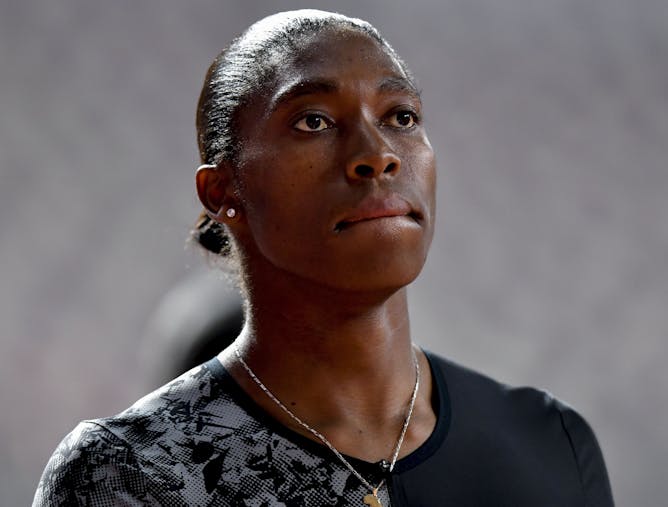
Caster Semenya at the IAAF Diamond League athletics meeting in Doha, Qatar, 03 May 2019.
Noushad Thekkayil/EPA
Steve Cornelius, University of Pretoria
If the Semenya ruling by the Court for Arbitration in Sport remains unchallenged, this way of thinking and behaving might filter into the International Olympic Committee
|
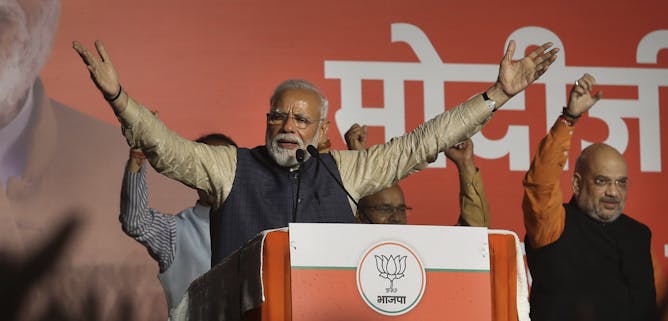
Indian Prime Minister Narendra Modi addresses party supporters, standing next to his Bharatiya Janata Party (BJP) President Amit Shah at their headquarters in New Delhi, India, May 23, 2019.
(AP/Manish Swarup)
Chandrima Chakraborty, McMaster University
India's re-elected Prime Minister Narendra Modi delivered a victory speech that presented himself as a selfless and humble ascetic. This vision goes far to promote a Hindu nationalist 'new' India.
|
Peacekeepers day
|
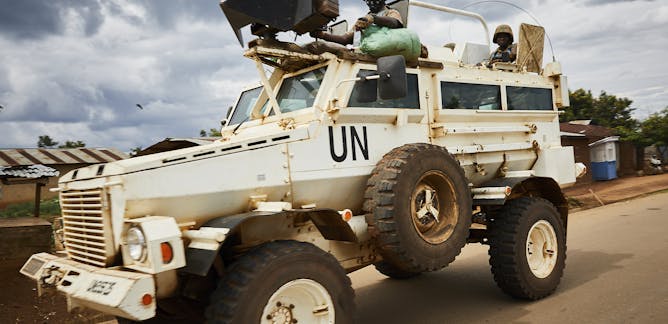
Charles T. Hunt, RMIT University
UN peacekeeping missions need to adapt to the complexities of active conflict situations.
| |
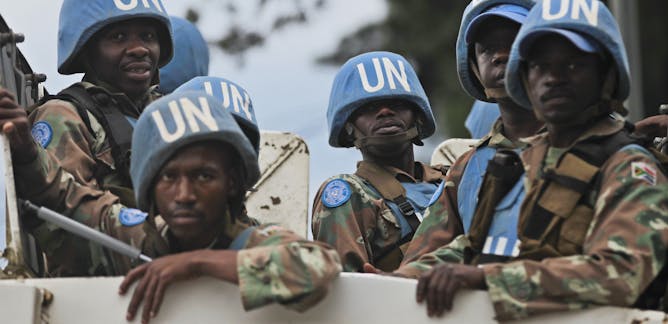
Adam Day, United Nations University
The UN's mandate must evolve to navigate new realities that include intra-state wars, non-state actors, and transnational crime.
|
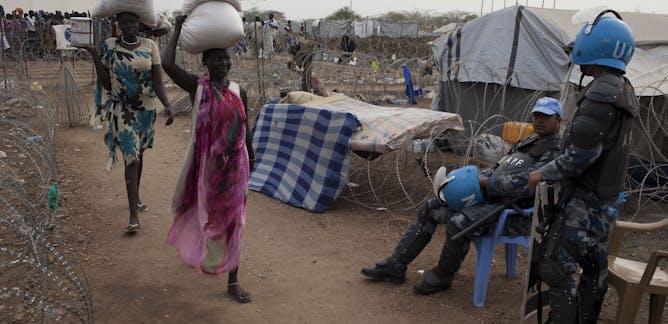
Adam Day, United Nations University; Charles T. Hunt, RMIT University
The United Nations Mission in South Sudan has had a mixed bag of success and failure.
| |
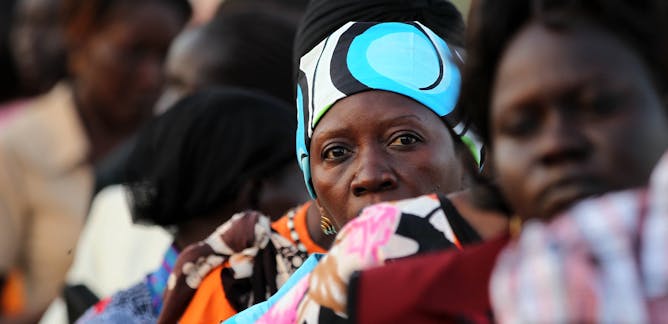
Rachel Ibreck, Goldsmiths, University of London
South Sudan’s chiefs wield real power, administering customary laws to resolve local disputes. But they often reinforce gender inequalities – could the new chief change this?
|
|
|
Politics + Society
|
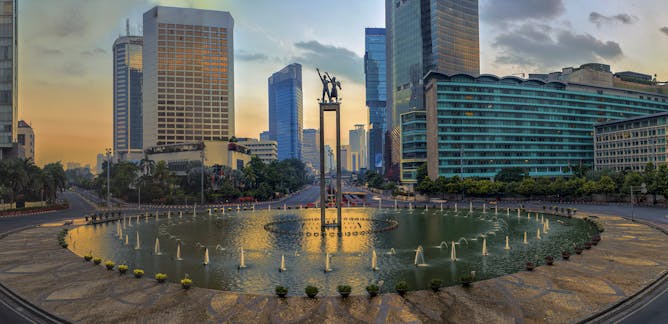
Rendy A. Diningrat, SMERU Research Institute
Indonesia has plans to move its capital outside of Java, but the government has yet to make the case for this move.
| |
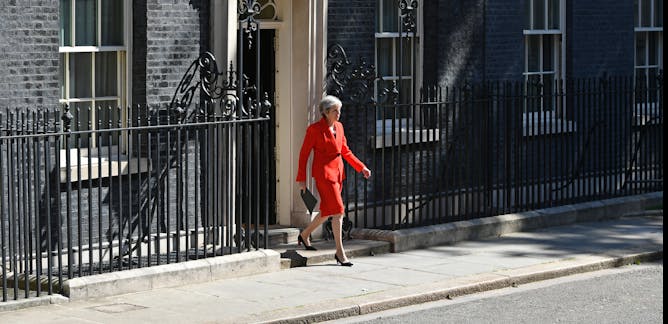
Tom Quinn, University of Essex
Boris Johnson, Amber Rudd, Dominic Raab? Who will be the next prime minister?
|
|
|
Environment
|
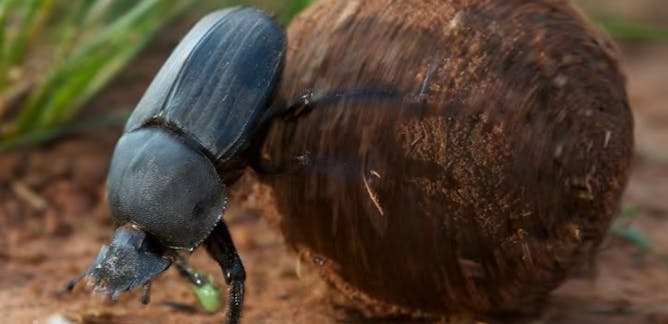
Marcus Byrne, University of the Witwatersrand
Dung beetles are largely invisible. And yet without their vital activities, the world would have a lot more faeces in it.
| |
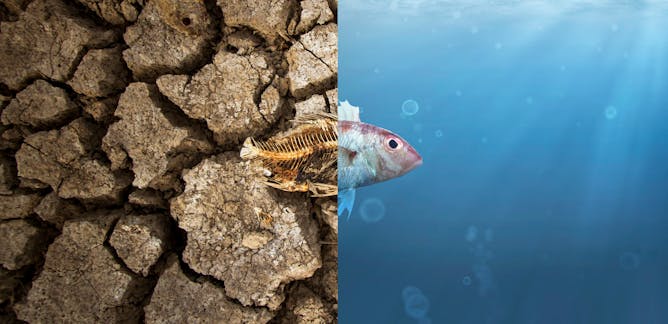
James Dyke, University of Exeter
Why radical changes to society are needed if we are to escape environmental disaster.
|
|
|